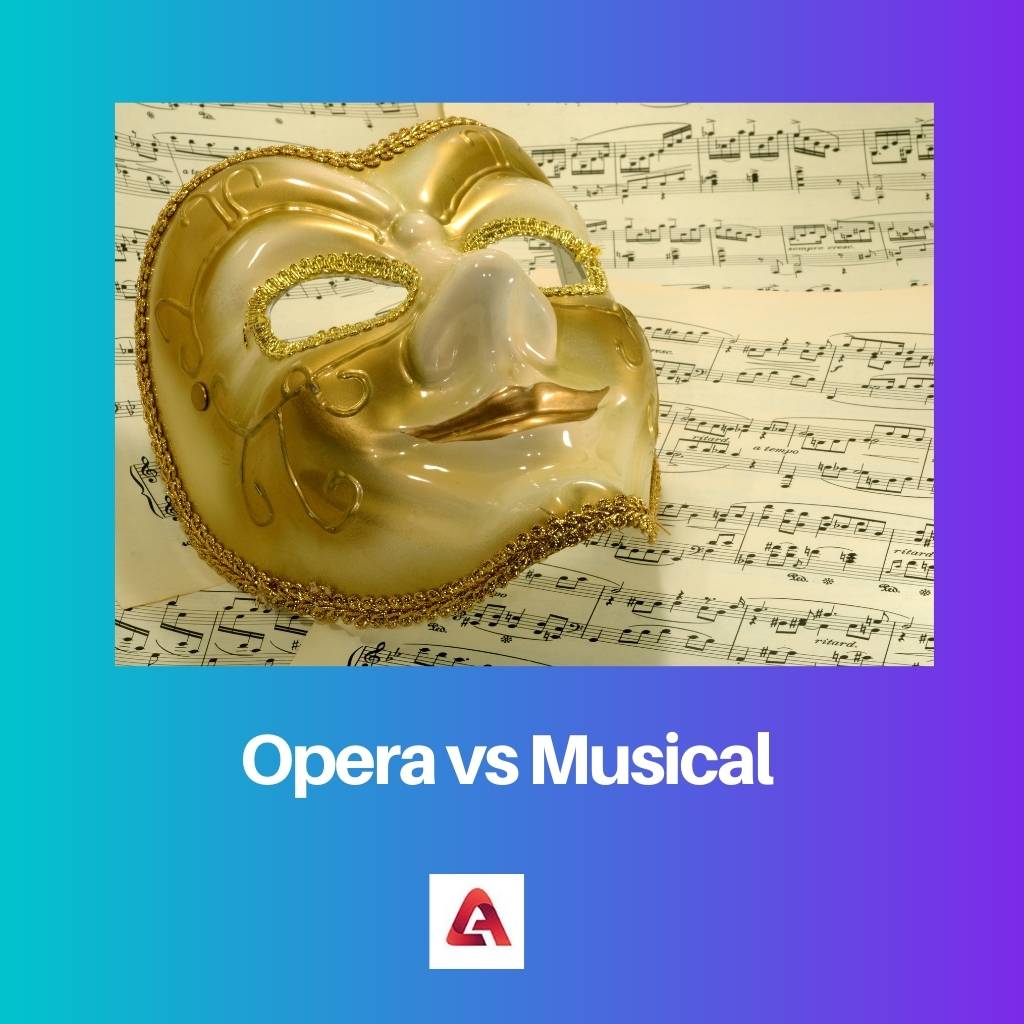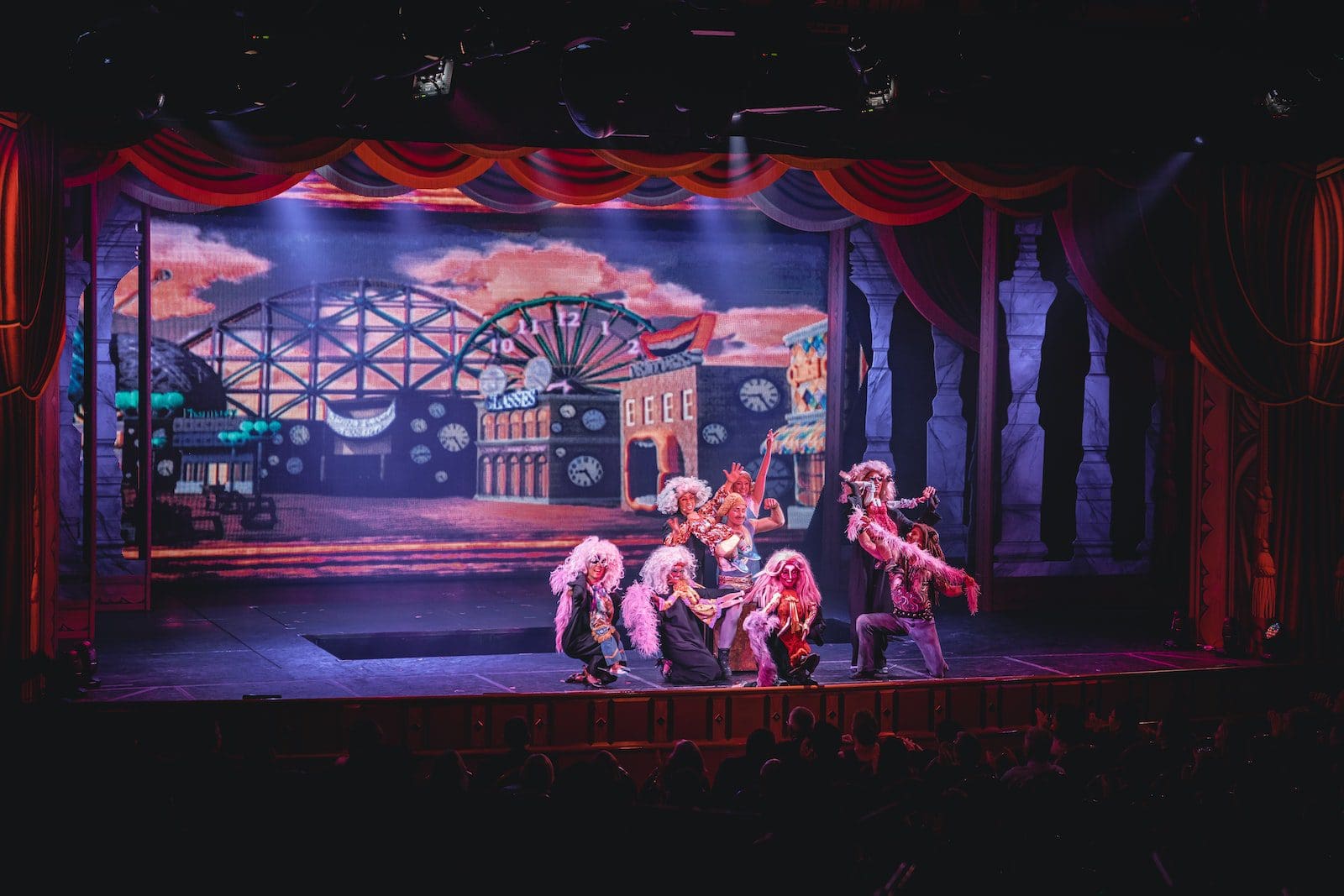Who doesn’t love music, rarely anyone? Music is an escape that we seek to find peace in.
Music can be heard in many forms and can be stored in as well. However, different types of people have different tastes in music that they prefer to listen to or share.
There are many types of musical shows which entail different features and make a distinguished place for themselves.
Musicals and Operas are two such terms that are very used in the world of music. Many people who even listen to these things are not aware of the differences that lie between them.
Key Takeaways
- Operas are primarily sung throughout the performance, while musicals feature a combination of spoken dialogue and songs.
- Operas are more serious and classical, while musicals are more lighthearted and contemporary.
- Operas are performed in their original language, while musicals are commonly performed in the local language.
Opera vs Musical
The difference between an Opera and a Musical is that the former is performed in an opera house with the help of a complete orchestra and uses music along with text to portray the message. While the latter is performed in a theatre with the help of a complete band but not necessarily, they need to be in the theatre as they can be performed in television or electronic entertainment shows.

An Opera, as suggested by the name itself, is performed and seen in opera houses. It happens to be a very old and classical form of storytelling by way of music and dialogues.
A proper orchestra is present in these opera houses to make this performance live.
A Musical, on the other hand, is popularly called by another name, that is musical theatre. This is basically a performance done with the help of music and dialogues in a theatre.
But with the passage of time, this form of entertainment has changed vastly, and now this can be seen in television and electronic media shows.
Comparison Table
| Parameters of Comparison | Opera | Musical |
|---|---|---|
| Meaning | It is performed and seen in opera houses. It happens to be a very old and classical form of storytelling by way of music and dialogues. | A Musical is basically a performance done with the help of music and dialogues in a theater. |
| Participants | most emphasis is put upon those participants that are established classical singers. | An actor happens to be the most crucial part, and singers are the back support. |
| Music performed | Traditional music is performed in this form of art. | It presents both traditional and modern music. |
| Format | It mostly includes singing and a little presentation of text by way of dialogues. | It mostly includes singing along with dance moves. |
| Additional things | In its basic essence, this does not support the attachment of any accessories such as microphones, etc. | In this form, microphones and mics are being used nowadays. |
| Language | It is always performed in the original language in which the texts or the music has been written. This guarantees the originality of such music. | The musical is performed in a language that happens to be feasible for the audience. |
| Focuses on | This focuses more on the music that has been served during the performance. | This focuses on the spoken dialogues more than the music or other things. |
What is an Opera?
An opera, as the name implies, is performed and seen in opera houses. It is a very old and classical form of storytelling that uses music and dialogue.
The emphasis in this form is on those participants who are established, classical singers.
In this form of art, traditional music is performed. It consists mostly of singing and a little text presentation in the form of dialogues.
In essence, this does not allow for the attachment of any accessories, such as microphones and so on.
It is always performed in the language in which the poems or music were originally created. This ensures the uniqueness of the music.
This concentrates on the music that was played during the performance. It is a popular type of entertainment in Western countries, and because it is a classical form, it is also well-known.

What is a Musical?
A musical, on the other hand, is more commonly referred to as musical theatre. In a theatre, this is essentially a performance with music and talk.
In this form, the actor plays the most important role, while vocalists serve as the backbone.
It features both classical and contemporary music. To make it more fascinating and engaging, it combines singing and dance motions.
Microphones and mics are now commonly utilized in this format to improve audience clarity and to make the performance more visually appealing.
The majority of the time, a musical is presented in a language that is accessible to the public and easy to understand by the listeners. This is more concerned with the spoken dialogues than with the music or other elements.
However, this is a classical kind of art as well, and many people hold it dear to their hearts.

Main Differences Between an Opera and a Musical
- Opera is a very old and classical form of storytelling by way of music and dialogues, while a Musical is basically a performance done with the help of music and dialogues in a theatre.
- Opera focuses more on the music that has been served during the performance. While in a Musical, focus is on the dialogue more.
- Opera is always performed in the original language in which the texts or the music has been written. In contrast, a Musical is performed in a language that is easy for the audience to understand.
- Opera, in its basic essence, does not support the attachment of any accessories such as microphones, etc. In contrast, musicals today are using these accessories to make them look interesting.
- In Opera, traditional music is performed, while in Musical, both traditional and modern music is performed.

- https://www.degruyter.com/document/doi/10.7312/grou11958/html
- https://psycnet.apa.org/record/2012-14631-011

The focus on music and spoken dialogues in operas and musicals respectively accentuates the unique storytelling methods employed in each genre. The introduction of microphones in modern musicals adds a contemporary touch to the performances.
Well said, Charles. The adaptation of technology in musicals enhances audience engagement while preserving the essence of storytelling through spoken dialogues.
I completely agree, Charles. The evolution of performance techniques in musicals reflects the evolving nature of theatrical productions and audience preferences.
The detailed comparison of the format, language, and focus between operas and musicals provides a comprehensive understanding of their characteristics. This is a thought-provoking analysis.
Indeed, Daniel. The depth of analysis in distinguishing operas from musicals sheds light on the cultural and musical significance of both genres.
I couldn’t agree more, Daniel. It’s enriching to gain insights into the historical and artistic aspects of these two musical genres.
The analysis of operas and musicals as distinct forms of entertainment is insightful. The discussion of language and performance venues enriches the understanding of their cultural significance.
Absolutely, Theo. The cultural and linguistic aspects play a defining role in shaping the identity of operas and musicals within the realm of performing arts.
The detailed comparison of operas and musicals provides valuable insights into the historical and artistic elements that define these genres. The emphasis on spoken dialogues in musicals and traditional classical music in operas offers a compelling contrast.
I couldn’t agree more, Julie. The exploration of thematic and artistic differences between operas and musicals is both enlightening and enriching.
Indeed, Julie. The insightful comparison enhances our appreciation for the distinct storytelling methods and cultural influences embedded in operas and musicals.
The historical context and modern adaptations of operas and musicals are presented with exceptional clarity and depth. The focus on traditional and contemporary music is particularly enlightening.
I agree, Pcox. Understanding the historical and musical evolution of operas and musicals adds a new dimension to appreciating their artistic value.
The essence of performing operas in the original language to ensure the originality of the music is an important point. It highlights the cultural and linguistic aspects of opera performances.
You’re absolutely right, John. Preserving the original language of operas is essential to maintain the authenticity of the music and storytelling.
This is a fascinating comparison between musicals and operas. I appreciate the emphasis on traditional music in the former and contemporary music in the latter. The focus on spoken dialogues in musicals is also an interesting distinction.
I completely agree, Greg. The unique features of each art form make them distinct and offer different experiences to the audience.
The emphasis on classical singers in operas and the growing use of microphones and modern music in musicals reflect the evolving nature of these art forms. The comparison table provides an excellent summary of the differences.
I share your sentiments, Jake. The comparison table effectively captures the distinct characteristics of operas and musicals, showcasing their unique attributes.
Absolutely, Jake. It’s intriguing to witness the evolution and adaptation of operas and musicals in response to changing artistic preferences.
The focus on music, language, and performance settings in comparing operas and musicals elucidates the diverse elements that contribute to their distinct identities. The preference for traditional and contemporary music is a key differentiator.
I share your views, Vcooper. The nuanced analysis of music and language in operas and musicals highlights the multifaceted nature of these art forms, offering diverse experiences to audiences.
Absolutely, Vcooper. The incorporation of traditional and modern music within operas and musicals reflects the evolving nature of musical expression and artistic interpretation.
The detailed exposition of the unique characteristics of operas and musicals provides a nuanced understanding of their artistic and cultural distinctions. The evolution of these art forms over time is evident.
I concur, Heather. The cultural and historical insights into operas and musicals are remarkably illuminating, shedding light on the dynamic nature of performing arts.
Indeed, Heather. The transformative journey of operas and musicals showcases the enduring legacy of these art forms and their adaptability across diverse eras.